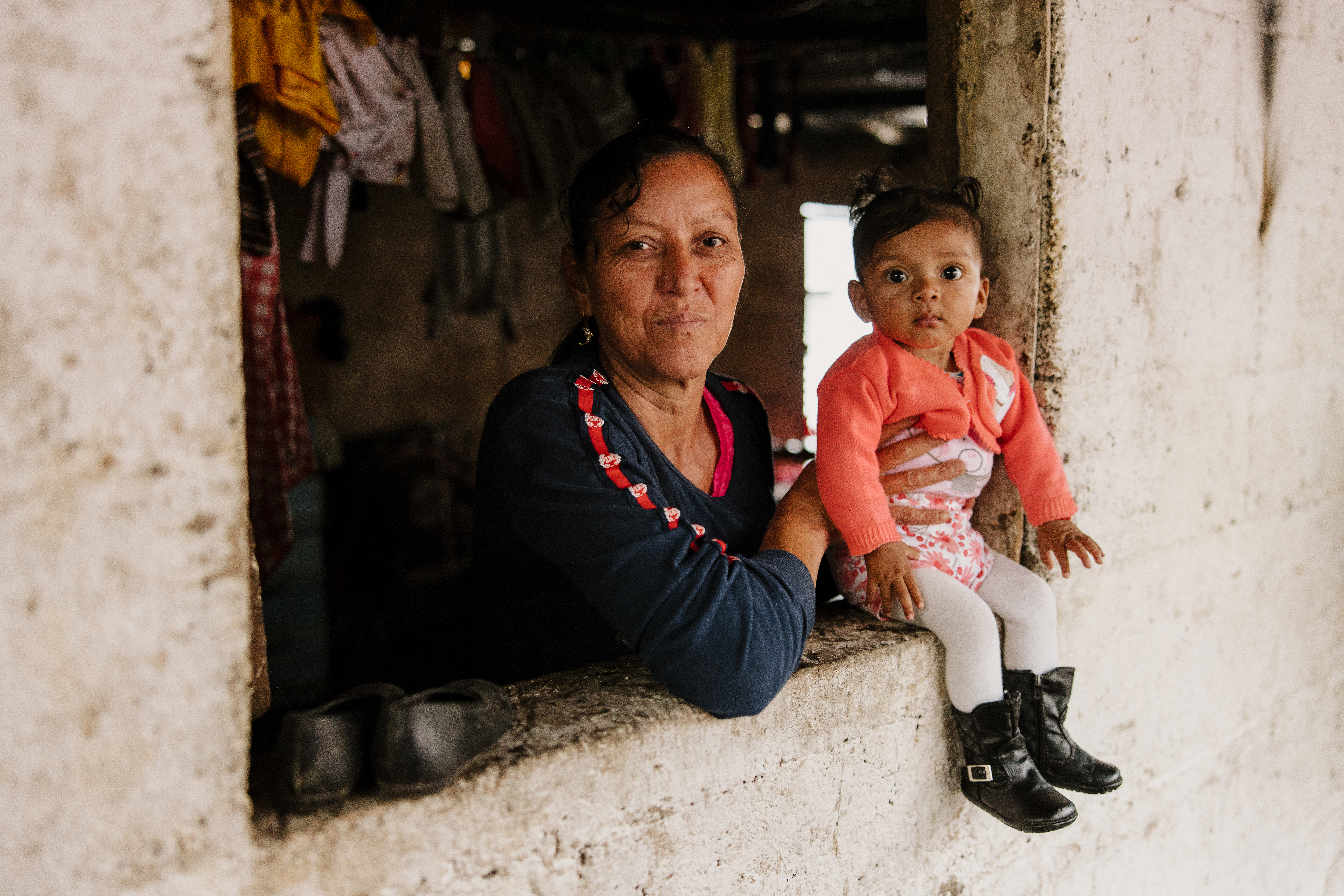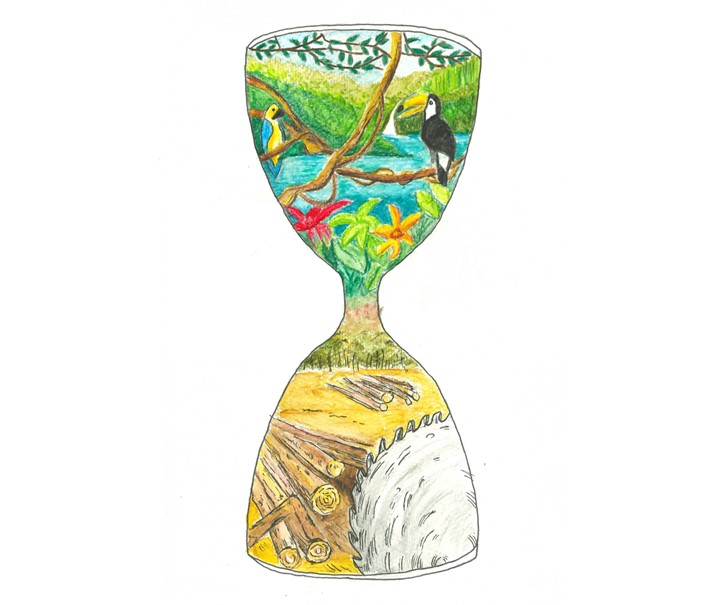Biodiversity does matter! That is according to young winners of the 2024 Columban Schools Competition in Britain who recently submitted image and print entries on the theme “Biodiversity Matters”. And more than that, young people see the Church as influential in protecting the diversity of life on Earth.
Print winner Austin Beeney – from the Holy Cross Catholic School in Chorley, Lancashire – reflected that Pope Francis has done much to help the Church to act on the linked Climate Change and Biodiversity crises.
He said: “The encyclical Laudato Si’ has had a major impact on raising awareness of the need to protect our ‘common home’. One of the most important messages of this document was that ‘all of us can cooperate as instruments of God for the care of creation, each according to his or her own culture, experience, involvements and talents.’ To me, this means that everyone, regardless of gender, race or background can work together to preserve God's creation.”
He suggested that some ways include encouraging wildlife into gardens by providing food, water and shelter. Helping to clean up local habitats is also important to protect wildlife habitat hotspots like forests and parks.
Shopping for good quality items that will last and have not harmed wildlife and food chains in production will not only help to preserve biodiversity but will save money as well! Austin suggested looking for Rainforest Alliance Certified and Forest Stewardship Council (FSC) products. Another contribution suggested was to take shorter showers and turn the water off when brushing teeth. This helps species which rely on local freshwater by saving resources. Additionally, growing wildflowers which produce nectar for bees helps ecosystems.
Finally, remembering to reduce, reuse and recycle prevents waste and tackles a destructive throwaway culture which has led to many habitats being destroyed and species being threatened due to landfill.
Austin’s message was to make environmentally friendly changes and inform people around you about the biodiversity crisis. He called for more of humanity to be good stewards, caring for all of God's creation and quoted Psalm 98:11-12: “Let the heavens be glad, and let the earth rejoice; let the sea roar, and all that fills it; let the field exult and everything in it. Then shall all the trees of the forest sing for joy.”
Second place article winner Anna Cookson – from Notre Dame Catholic Sixth Form College in Leeds – highlighted humanity’s “reckless” destruction of food and health potential. She pointed out that half of all modern medicines are developed from plant and animal derivatives. The opportunities to unearth new flora to treat pressing health problems and future pandemics are far reaching.
“There is a massive, untapped potential in the natural world to sustainably reduce human suffering, an area of research I would love to enter in the future” she said. “The biodiverse wonderlands that span our earth are truly a gift from God,” she reflected, “a gift humans are recklessly exploiting.”
She believes it is possible to find a balance between making use of the healing properties of nature and maintaining these precious resources. “The work of many communities to challenge big corporations lack of sustainability gives me hope for the future that we will be able to turn this trainwreck of extinction around,” she said. She quoted Dr Sandy Knapp, a botanist and cancer survivor who is now an advocate for biodiversity: “I started out from a place where I already appreciated the usefulness of life of Earth. But it becomes personal, when those drugs derived from plants and bacteria actually did save my life. The value of biodiversity itself becomes personal too. I am now determined to fight for its survival even harder than I did before.”
Anna also highlighted the words of Pope Francis in Laudato Si’: “There can be no renewal of our relationship with nature without a renewal of humanity itself.”
“Each Square” was the title of an article by Sarah Ashcroft of Loreto Grammar School, Altrincham. It pointed to the interconnection between all living things and that all rest in a precarious global balance.
Sarah deplored the “havoc” humanity can wreak through war and over consumption of natural resources. But she offered hope: “So, together, we can overwrite past mistakes and draft new chapters of care. We can drop our defences and form a force written in love, not hate.”
The winning image also came from a pupil at Loreto Grammar School in Altrincham. Chidera Anyakora produced a beautiful image of “a heart made of trees and plants with animals living together in harmony”.
The second-place image by Megan-Rose Ibus, of Loreto College in St Albans, contrasted the problem of biodiversity loss with how the Earth could retain its biodiversity. It contained a quote from Pope Francis: “We must not be indifferent or resigned to the loss of biodiversity and the destruction of ecosystems, often caused by our irresponsible and selfish behaviour.”
A key image was a rainbow, representing God’s Covenant with Creation, and which is so important in creation-centred theology. Several shortlisted images had also highlighted the dilemma of living a sustainable lifestyle rather than a life of over consumption which is full of pleasure but at what cost.
In her third-place image of a Biodiversity Sand Timer, Charlotte Moyes of St Edward’s in Poole illustrated how time is running out to save species and how urgent it is to raise awareness of biodiversity.
It was inspiring that the young people were so hopeful about addressing the environmental crises humanity faces. They stressed that protecting our environment not only respects God’s creation but is necessary for humanity’s well-being and even survival. As one winner put it: “We are a part of nature and God’s creation, and if part of the system suffers and an imbalance is created, we will consequently suffer also.”
Initiatives coming up this year which offer further involvement are Laudato Si’ Week in May on the theme of “Seeds of Hope”, and the Season of Creation in autumn on the theme “Hope and Act with Creation”.
The Columbans were delighted that one of the judges in Britain, Mary Colwell, has been instrumental in bringing in the new Natural History GCSE. This is alongside her campaigning work to raise awareness of the decline of curlews, a large European wading bird. The UK government has now backed a proposal by exam board OCR that it will aim to get the GCSE up and running so pupils can take it from 2025. Mary Colwell hopes “first and foremost”, it will help connect young people back to the natural world.
The Columbans thanked the teachers in the 29 schools in Britain whose pupils sent in entries and who helped raise awareness of the issue of Biodiversity.



 Loading ...
Loading ...
What do you think?
You can post as a subscriber user ...
User comments (0)